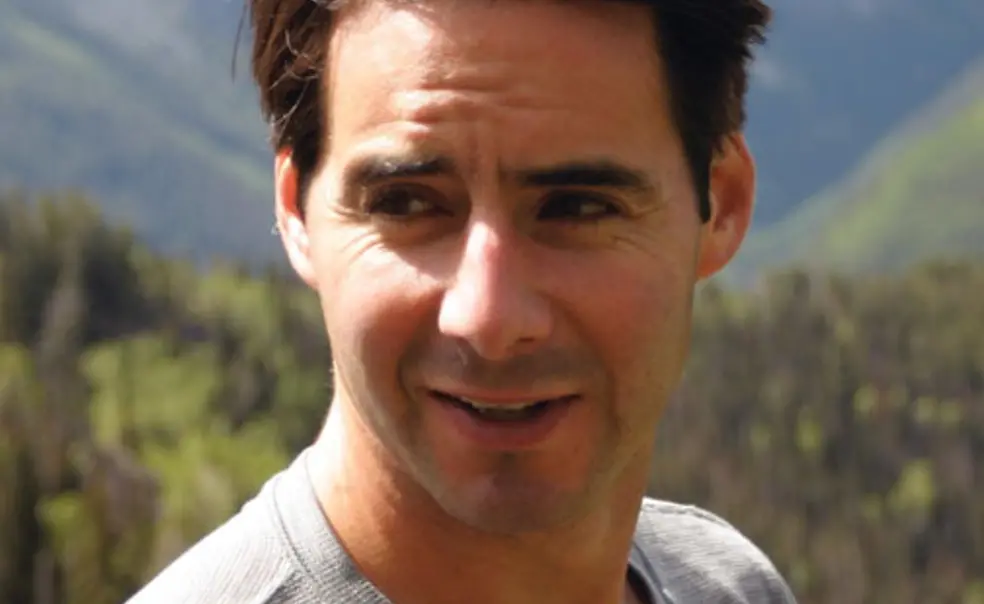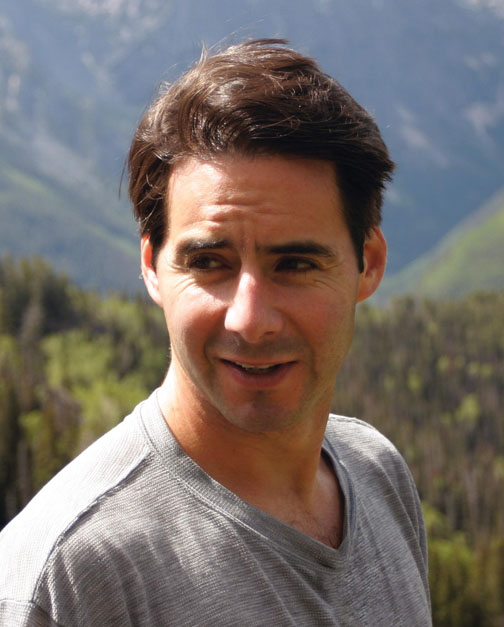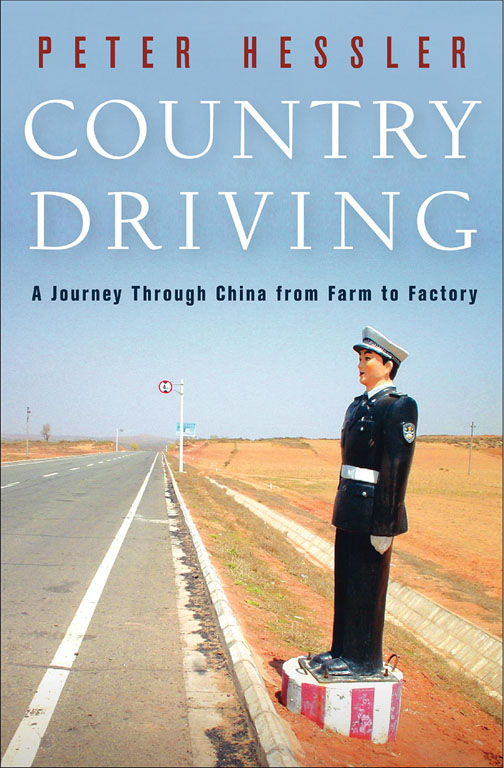An observer of new China
Peter Hessler ’92 surveys lives changed by the automobile and improved roads
For many Westerners, the Great Wall is a potent symbol of ancient Chinese culture. In his new book, Country Driving: A Journey Through China from Farm to Factory, Peter Hessler ’92 surveys the wall from what he sees as a fitting emblem of modern China: the automobile.
After obtaining his Chinese driver’s license in 2001, Hessler rented a car and set out on the pocked roads west of Beijing, following the curving path of the Great Wall all the way to Inner Mongolia. Sleeping in a tent and stopping in small towns along the way, he caught glimpses of a premodern China that was fast disappearing as young people migrated to the cities in search of work.
“To drive across China was to find yourself in the middle of the largest migration in human history — nearly one-tenth of the population was on the road, finding new lives away from home,” Hessler writes.
By 2001 Hessler had lived in China for five years, but had witnessed the countryside only by plane or train. “Sitting behind the wheel woke me up,” he writes. “That was happening everywhere: In Beijing alone, almost a thousand new drivers registered on each average day.”
Published this month by HarperCollins, Country Driving examines the impact of the automobile and an improved road system on Chinese life and culture. Hessler explores the ramifications of these developments in multiple ways. In addition to describing his two road trips along the Great Wall, he paints a picture of life in a small village as it slowly is transformed by automobile tourism. A third narrative strand looks at the growth of a factory town that sprouted up along the spine of a new highway.
Like much of Hessler’s work, Country Driving focuses on ordinary people rather than economic or political leaders. In Sancha, a village north of Beijing, Hessler profiles the family of Wei Ziqi, an entrepreneurial farmer who opens a restaurant to cater to Chinese tourists seeking a taste of local culture. In the city of Lishui, a factory town along the Jinliwen Expressway, Hessler follows Boss Wang, a pioneering manufacturer who — like other Chinese businessmen — pins his hopes for financial success on a specific product. In Wang’s case: a component used in women’s brassieres.
In the course of these narratives, Hessler illustrates how China’s newfound prosperity has affected average citizens. The rapid pace of change “has been disorienting to people,” Hessler says. “They’re much more comfortable now. They don’t have to worry about having enough to eat ... but they have other problems, like health problems” caused by gaining weight or picking up smoking.
Country Driving is Hessler’s third book about China, and he sees it as the completion of a trilogy that began with River Town, which chronicled his two years teaching English in a remote town on the Yangtze River.
After living in China for a decade and serving as Beijing correspondent for The New Yorker from 2000 to 2007, Hessler returned to the United States in 2007 and now lives in Colorado. He still owns a home in China and plans to return someday.
Hessler ultimately is reluctant to make judgments about the country’s car culture. His aim as a journalist always has been to describe “what’s going on in China ... and to do that with some sympathy and understanding.”
Maurice Timothy Reidy ’97 is online editor at America magazine.














No responses yet